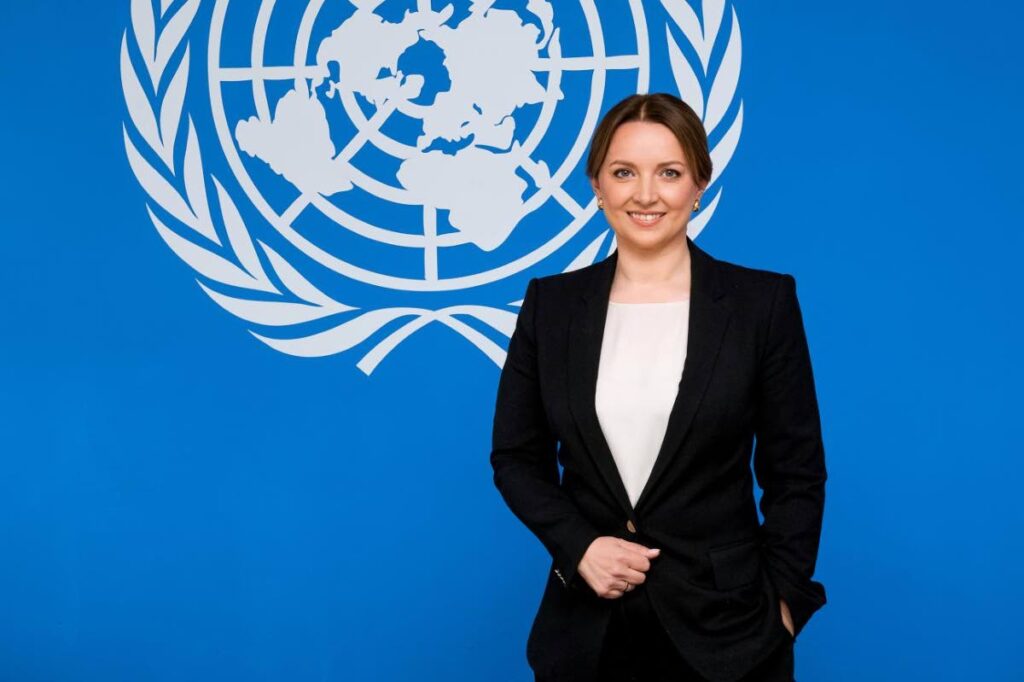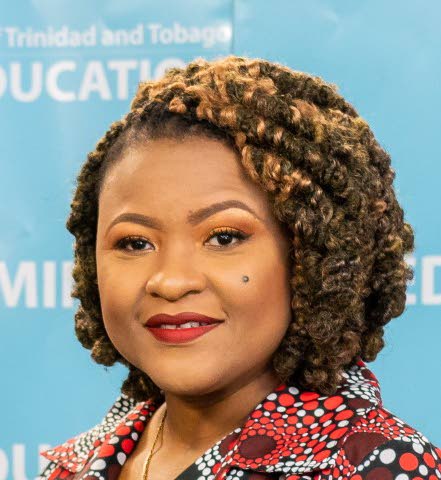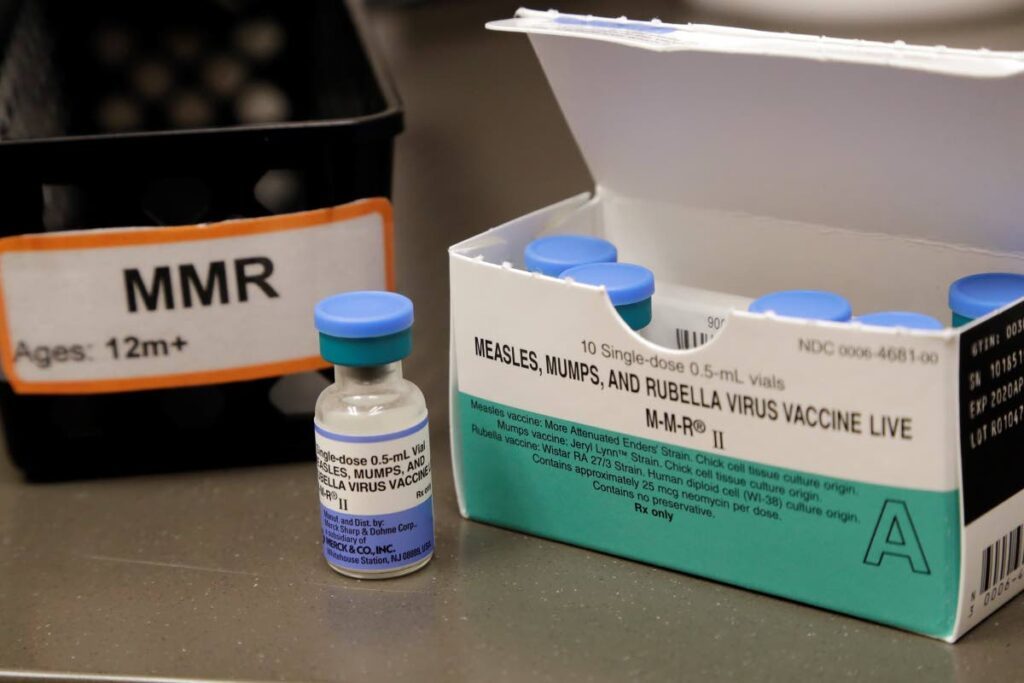Unicef, Planning Ministry report: 25% of children unvaccinated in Trinidad and Tobago

A quarter of children in Trinidad and Tobago have not had the basic childhood immunisations against diseases like polio and rubella, UN resident co-ordinator Joanna Kazana told reporters on January 26.
She spoke after the Ministry of Planning, in collaboration with Unicef, hosted the launch of a survey of the life conditions of women and children, the 2022 Multiple Indicator Cluster Survey (MICS) Report at the Radisson Hotel, Port of Spain.
Planning Minister Pennelope Beckles gave the feature address which was also addressed by Kazana.
Replying to reporters' questions, Kazana said, "The not-so-good news is that there is a gap in terms of vaccination of children.
"Before covid and actually 12 years ago during a previous survey, there was a gap of 12 per cent, only 12 per cent of children were non-vaccinated.
"Now, after covid, there is a gap of 26 per cent. So more than a quarter of children are delayed, in terms of their vaccination schedule."
Newsday asked if this worsening was also seen elsewhere globally. Unicef planning specialist Patrice Bosso replied yes. Kazana agreed.
Newsday asked the reasons for a current shortfall in immunisations.
"Part of the problem is there is (covid19) vaccine hesitancy.
"I'd say the most important obstacle was access to medical services, which was restricted because of the lockdown, and parents perhaps do not remember that the vaccination which was due at the time of covid is still due now after the pandemic."
Kazana said the report also had a lot of good news.
"The best part of the news is about the health statistics, which are generally improving.
"The child mortality rates are going down. This means that fewer and fewer babies and children are dying around birth and also in childhood, under five years of age, this is very good news."
Newsday asked Education Minister Dr Nyan Gadsby-Dolly whether her ministry was aware of the findings of the report and if unvaccinated children were attending school.

She said she had not seen the report and could not comment on it.
Newsday asked if the law required pupils to be immunised.
Gadsby-Dolly replied, "I'd not want to comment on anything I have not seen.
"If you are asking me if immunisation is a requirement to come into public schools, then yes, it is a requirement.
"So, if a student does not present an immunisation card with the requisite vaccinations, they should not be in school.
"But outside of that, I can't comment on the report. I have not seen it and wouldn't want to say anything I don't know about."
Newsday asked if she knew how stringently this provision was enforced or if it was advisory.
"No. It's not advice. It is required, and a principal is required to enforce that mandate that students who are registered are immunised."

She said she had heard of cases where the policy was not adhered to.
"I don't know the particular circumstances.
"None have come before me immediately. But it is a requirement to be registered as a student in our schools in TT."
Pupil immunisation is required by the Public Health (Nursery Schools and Primary Schools Immunisation) Act 1973.
It says that, in general, "No person may be admitted into any nursery school or primary school unless he produces to the principal thereof a certificate of immunisation with respect to every communicable disease."
The law adds, "A principal of any nursery school or primary school who admits any person to such school in contravention of subsection (1) or section 5 is liable on summary conviction to a fine of one thousand dollars."
An exemption may be allowed if a pupil has a doctor's note citing medical grounds for non-immunisation.
The act listed the communicable diseases to be immunised against as poliomyelitis, diphtheria, tetanus, yellow fever and measles.
The Ministry of Health website said the Expanded Programme on Immunisation (EPI) is a joint effort of the World Health Organization (WHO), the Pan American Health Organization (PAHO) and the Ministry of Health of Trinidad and Tobago. The website explains its position on immunisation.
"The philosophy of the EPI Unit is that every child should be immunised against vaccine-preventable diseases.
"The vision of the organisation is to identify and completely immunise all infants, children, pregnant women and men as early as possible, in accordance with a national immunisation schedule."
The report said for children aged 2-3, the proportion with full vaccination coverage fell from 55 per cent in 2011 to 46.9 per cent in 2022.
Figures showed that children most likely to be vaccinated were female (rather than male), East Indian (rather than African), rural (rather than urban), and working-class/second quintile in wealth index (as opposed to poor-class/first quintile or rich-class/fifth quintile.)
Elsewhere in the report under the heading, Education, the report suggested about 20 per cent of primary school level children do not attend school.
It said the primary school intake rate in 2022 was 79.4 per cent for boys and 80.1 per cent for girls, down from 81.7 per cent for boys in 2011 and 87.8 for girls.
Beckles: Household Budget Survey coming
Planning Minister Pennelope Beckles said the survey took one year to complete.
She said this was the first time the Central Statistical Office (CSO) has conducted this survey as the lead implementation agency.
"It is a big deal because the MICS is the largest household survey completed since the last population and housing census in 2011."
Beckles said the data will be posted online so it can be used by various organisations for informed decision-making.
"We are launching the MICS data via the Datanett portal as well as through a suite of data dissemination tools, namely a MICS dashboard and a mobile application. So by accessing www.datanett.info, citizens, government agencies, NGOs, civil society organisations, and more will be electronically connected to this vast reserve of high quality, robust MICS data facilitating informed decision-making and more."
Beckles said the survey painted a clearer picture of the status of children and women in TT and will help monitor the progress of TT's national development goals and internationally agreed commitments.
"The CSO aimed to administer the 2022 Trinidad and Tobago MICS to a representative sample of approximately 9,000 households and reached a total of 8,962, which is a representative sample of a household response rate of 91.8 per cent, using computer-assisted personal interviewing technology for the real-time collection of data."
Beckles said the CSO will conduct a household budget survey and survey of living conditions starting in January.
"The Household Budget Survey will provide detailed data on household income and expenditure not available from any other source, while the Survey of Living Conditions assesses social data on areas such as poverty, health, education and other indicators," she said.
"The CSO is also making preparations for TT’s upcoming National Population and Housing Census, among other business and socio-economic surveys."

Comments
"Unicef, Planning Ministry report: 25% of children unvaccinated in Trinidad and Tobago"